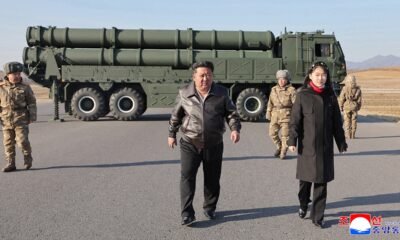INTERNACIONAL
Malos datos para la economía china: la producción industrial y del consumo registraron sus niveles más bajos en casi un año
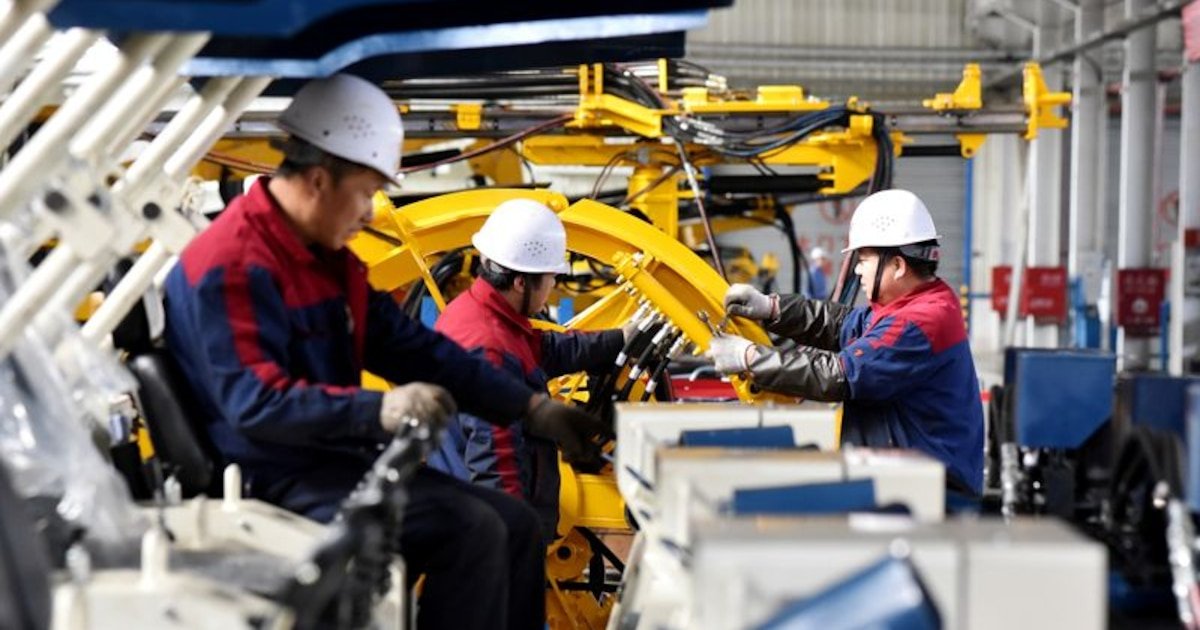
La economía china volvió a mostrar señales de enfriamiento en agosto, con un crecimiento de la producción industrial y del consumo que se ubicaron en sus niveles más bajos en casi un año. Las cifras, difundidas por la Oficina Nacional de Estadísticas (NBS), incrementan la presión sobre el régimen de Beijing para implementar medidas adicionales de estímulo que permitan alcanzar el objetivo oficial de crecimiento “cercano al 5%” en 2025.
La producción fabril avanzó 5,2% interanual en agosto, por debajo del 5,7% registrado en julio y del mismo porcentaje que esperaba el consenso de analistas. Se trata del dato más bajo desde agosto de 2024. En paralelo, las ventas minoristas, indicador clave del gasto de los hogares, aumentaron 3,4% interanual, un retroceso respecto al 3,7% del mes previo y el menor ritmo desde noviembre de 2024.
“Los datos de actividad apuntan a una nueva pérdida de dinamismo el mes pasado. Aunque parte de la caída refleja disrupciones temporales por el clima, el crecimiento subyacente se está debilitando de forma evidente, lo que incrementa la presión sobre las autoridades para ofrecer más apoyo”, explicó la economista Zichun Huang, de Capital Economics.

Uno de los factores que más pesa sobre la economía es el deterioro del mercado inmobiliario, que ha reducido el patrimonio de los hogares y enfriado el consumo. Según la NBS, los precios de las viviendas nuevas cayeron 0,3% en agosto frente a julio y acumularon un descenso de 2,5% en un año. El dato confirma la debilidad prolongada del sector, golpeado por la elevada deuda de los desarrolladores y por estrictas medidas contra la especulación.
“El mercado interno enfrenta una oferta abundante, una demanda débil y algunas empresas atraviesan dificultades operativas”, reconoció Fu Linghui, economista jefe de la NBS. La debilidad se refleja en el comportamiento de las familias, que han optado por contener el gasto en medio de la incertidumbre laboral.
La tasa de desempleo urbano aumentó a 5,3% en agosto, tras ubicarse en 5,2% en julio y 5,0% en junio. La falta de confianza de las compañías para contratar, junto con la reducción de márgenes por la competencia en precios, ha afectado la creación de puestos de trabajo.
La industria manufacturera también se vio afectada por factores climáticos. El verano de 2025 fue el más caluroso desde 1961 y estuvo acompañado por la temporada de lluvias más prolongada en más de seis décadas, lo que afectó la producción en distintas regiones.
En el frente externo, las tensiones comerciales con Estados Unidos siguen siendo un obstáculo. A lo largo del año, ambos países impusieron aranceles elevados a sus exportaciones, en algunos casos de hasta tres dígitos, lo que complicó las cadenas de suministro. Aunque en agosto acordaron una tregua temporal que redujo los gravámenes a 30% en el caso de Washington y a 10% en el de Beijing, la incertidumbre sigue pesando sobre las empresas exportadoras.
Los equipos negociadores de ambos países iniciaron este domingo en Madrid una nueva ronda de conversaciones con el objetivo de desactivar disputas en torno a tarifas y cuestiones tecnológicas. La pausa en la guerra comercial se extendió por 90 días adicionales, hasta el 10 de noviembre.

La inversión en activos fijos, que refleja el dinamismo de la construcción y las adquisiciones de largo plazo, creció apenas 0,5% entre enero y agosto en comparación con el mismo período de 2024. La cifra es menor al 1,6% registrado en los primeros siete meses del año y muy inferior al 1,4% que preveían los analistas.
Para contrarrestar el menor acceso al mercado estadounidense, los fabricantes chinos han intentado redirigir exportaciones hacia el sudeste asiático, África y América Latina. Aunque esta estrategia ha mostrado algunos resultados, la magnitud de la crisis inmobiliaria sigue limitando el impulso general de la economía.
El régimen chino reconoce que el camino para alcanzar la meta anual de crecimiento no será sencillo. Zheng Shanjie, director de la Comisión Nacional de Desarrollo y Reforma, aseguró recientemente que Beijing “hará pleno uso de las políticas fiscales y monetarias” y que se fortalecerán las herramientas financieras para apoyar la economía.

Analistas del sector privado coinciden en que serán necesarios nuevos recortes de tasas de interés y reducciones en los coeficientes de reserva bancaria. “Es muy probable que veamos un recorte adicional de 10 puntos básicos en la tasa y una reducción de 50 puntos en el coeficiente de reservas en las próximas semanas”, señaló Lynn Song, economista jefe para Gran China en ING.
“El fuerte inicio del año mantiene los objetivos de crecimiento aún al alcance, pero, al igual que el año pasado, será necesario un mayor apoyo de estímulos para garantizar un cierre sólido”, añadió el especialista.
El deterioro de la confianza de consumidores y empresarios, junto con el ajuste en el sector inmobiliario y las tensiones comerciales, se suman a un contexto internacional frágil. A ello se añade la volatilidad climática que ha golpeado al sector industrial.
La combinación de estos factores obliga a las autoridades chinas a acelerar medidas de estímulo que impulsen el crédito, fortalezcan la demanda interna y otorguen mayor certidumbre a las empresas. Sin embargo, los analistas advierten que, sin una recuperación sostenida del mercado inmobiliario y una mejora clara en la relación con Estados Unidos, los riesgos de un crecimiento por debajo del objetivo seguirán latentes.
En este escenario, la evolución de los próximos meses será clave para determinar si la segunda mayor economía del mundo logra cumplir con sus metas anuales o si deberá resignarse a un nuevo año de expansión moderada.
(Con información de Reuters y AFP)
Business,Asia
INTERNACIONAL
Obama-era greenhouse gas rules gone as EPA’s Zeldin signs ‘single largest deregulatory action’ in history
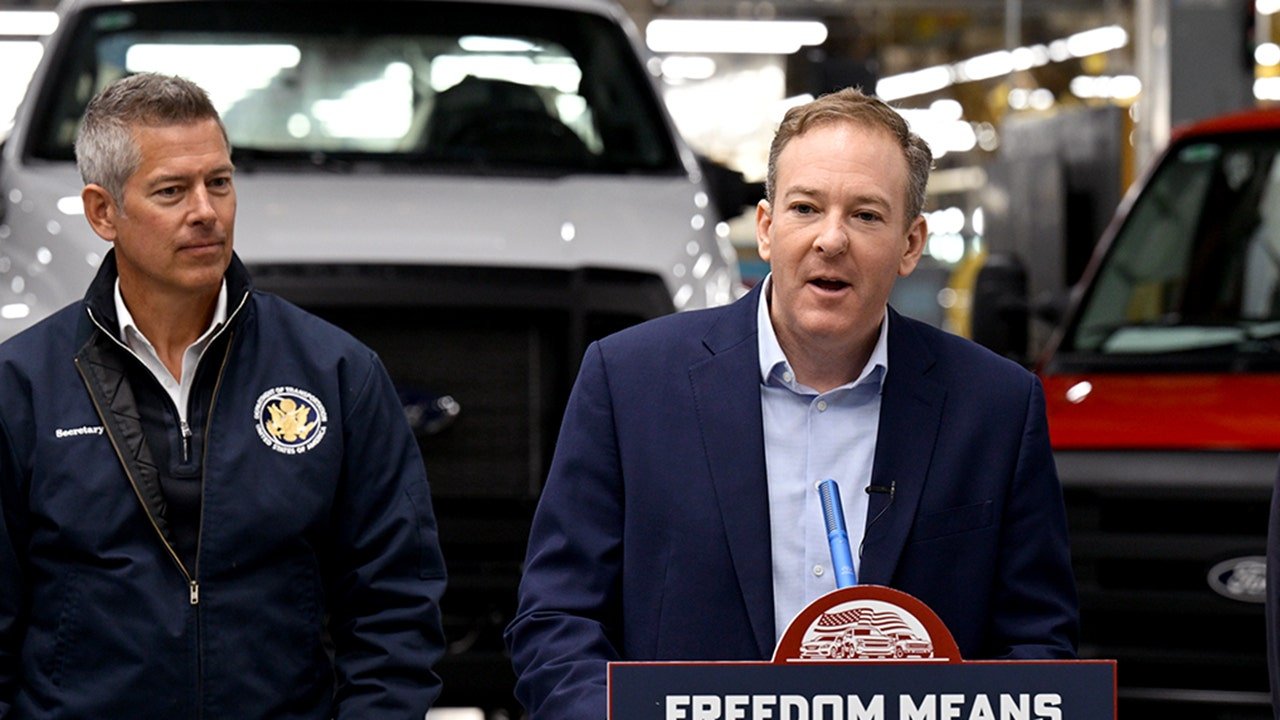
NEWYou can now listen to Fox News articles!
FIRST ON FOX: Environmental Protection Agency (EPA) Administrator Lee Zeldin on Thursday will eliminate the «2009 Obama EPA Endangerment Finding,» which set in motion most federal greenhouse gas emissions standards for vehicles, saving Americans billions.
The 2009 development was an EPA finding that carbon dioxide, methane, nitrous oxide and three other greenhouse gases «endanger the public health and welfare of current and future generations» under the Clean Air Act — leading to a slew of new restrictions and regulations.
An ensuing Supreme Court ruling in Massachusetts v. EPA found greenhouse gases qualify as air pollutants and that if the EPA determines they endanger public health or welfare it can regulate them.
«As I traveled across all 50 states this past year, I heard from countless Americans who not only dislike the (motor-vehicle) start-stop feature but passionately advocated for this mechanism to be a thing of the past,» Zeldin said of the major recission made Thursday.
TRUMP TAKES AXE TO FEDERAL RED TAPE, CUTS 600+ RULES IN ONE YEAR, TOUTS BILLIONS IN SAVINGS
Secretary of the Interior Doug Burgum, House Speaker Mike Johnson and EPA Administrator Lee Zeldin watch as President Donald Trump sign an executive order directing the military to purchase electricity from coal-fired power plants during a «Champion of Coal» event at the White House in Washington, Feb. 11, 2026. (Saul Loeb/AFP via Getty Images)
«Not only do many people find start-stop annoying, but it kills the battery of your car without any significant benefit to the environment. The Trump EPA is proudly fixing this stupid feature at Trump Speed.»
Zeldin said automakers shouldn’t be forced to adopt or be rewarded for using technologies that represent a «climate participation trophy» with no meaningful reduction in actual pollution.
The former New York lawmaker said consumer choice is a priority for his agency, and that his office will continue to advocate for «commonsense rules.»
ZELDIN OVERHAULS BIDEN-ERA WATER RULE TO END ‘WEAPONIZATION’ THAT LED ‘PUDDLES’ TO TRIGGER PRICY PERMITS
US Department of Transportation Secretary Sean Duffy added in a statement that resetting of mileage standards and removal of auto-starts and other greenhouse-gas-regulation-precipitated regulations are part of President Donald Trump’s vision to lower costs and revitalize manufacturing.

Department of Transportation Secretary Sean Duffy and EPA Administrator Lee Zeldin visit an auto plant. (Dustin Franz/Getty Images)
All federal greenhouse gas emission standards for vehicles and engines subsequent to the 2009 declaration will be rescinded, a source familiar with the situation said.
When it comes to the start-stop off-cycle technology, a credit for it was created by the EPA in 2012 and quickly infuriated motorists who hear their engine click off then on again at a stoplight or in the teller line at the bank.
TEXAS CHALLENGES NEWSOM’S GAS CAR CRACKDOWN, WARNING CALIFORNIA CAN’T DICTATE US AUTO MARKET
The start-stop became a regulatory loophole allowing automakers to claim greenhouse gas credits without actually delivering empirical emission-reduction or human health benefits.
White House Press Secretary Karoline Leavitt said the move to rescind the 2009 finding will «be the largest deregulatory action in American history, and it will save the American people $1.3 trillion in crushing regulations,» according to multiple reports.
However, the climate change field appears eager to litigate the new rule, as the nonprofit green-focused law firm Earthjustice signaled as much to PBS.
CLICK HERE TO DOWNLOAD THE FOX NEWS APP
«The Trump administration is abandoning its core responsibility to keep us safe from extreme weather and accelerating climate change,» Earthjustic president Abigail Dillen told the outlet.
«There is no way to reconcile EPA’s decision with the law, the science and the reality of disasters that are hitting us harder every year. Earthjustice and our partners will see the Trump administration in court.»
Some states, however, were not supportive of the news including Colorado, where Gov. Jared Polis said he «stands by (the) science» of the former EPA guidance.
«Protecting people’s health and making our air cleaner should never be a partisan issue,» Polis said in a statement.
«The science is clear that pollution from cars and trucks harms our air quality and puts families — especially kids, seniors, and those with health conditions — at greater risk. Rolling back long-standing protections creates uncertainty for consumers and businesses at a time when we should be investing in cleaner air, innovation, and energy diversity.»
«These investments aren’t just the right thing for our climate, it’s good business,» the Democrat concluded. «Clear, science-based standards give companies the certainty they need to invest and create jobs. Colorado will continue to stand behind science and protect the health and well-being of Coloradans.»
climate change environment,white house,environment regulation,carbon emissions,environment
INTERNACIONAL
North Korean leader Kim Jong Un’s daughter seen as future successor: spy agency
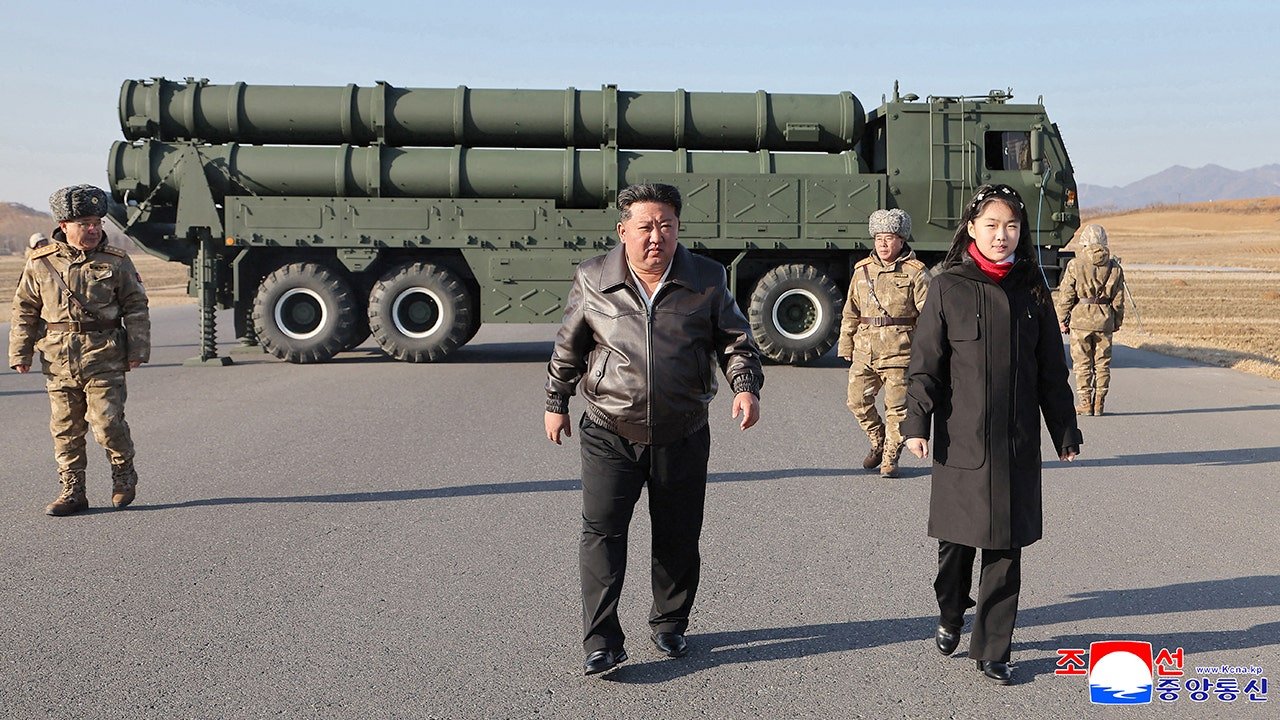
NEWYou can now listen to Fox News articles!
South Korea’s espionage agency, the National Intelligence Service, informed lawmakers Thursday that it thinks North Korean leader Kim Jong Un’s teenage daughter is near to being set apart as the regime’s future leader, The Associated Press reported.
Kim is the third generation of men in his family to rule North Korea.
In a closed-door briefing, NIS officials said they are closely monitoring whether Kim’s daughter — believed to be named Kim Ju Ae and around 13 years old — appears with him before thousands of delegates at the upcoming Workers’ Party Congress, said lawmaker Lee Seong Kweun, who attended the meeting.
NORTH KOREA EXECUTED TEENS FOR LISTENING TO K-POP, WATCHING ‘SQUID GAME’: REPORT
This picture taken on Jan. 27, 2026, and released by the Korean Central News Agency (KCNA) on Jan. 28, 2026, shows Kim Jong Un and his daughter Kim Ju Ae inspecting a test firing of a rocket launcher system, at an undisclosed location in North Korea. (KCNA via KNS/AFP via Getty Images)
«In the past, (NIS) described Kim Ju Ae as being in the midst of ‘successor training.’ What was notable today is that they used the term ‘successor-designate stage,’ a shift that’s quite significant,» Lee noted, according to the outlet.
In 2023, South Korea’s National Intelligence Service indicated to lawmakers that the North Korean leader and his wife probably had an older son as well as a younger, third child of unknown gender, according to The Associated Press.
PENTAGON PLANS TO GIVE SOUTH KOREA PRIMARY ROLE IN DETERRING NORTH KOREA THREATS UNDER NEW STRATEGY

This picture taken on Jan. 27, 2026, and released by KCNA on Jan. 28, 2026, shows Kim Jong Un and his daughter Kim Ju Ae inspecting the test firing of a rocket launcher system. (KCNA via KNS/AFP via Getty Images)
North Korea is one of the world’s few nuclear-armed nations, making it a unique threat on the global stage.
A 2025 U.S. Intelligence Community Annual Threat Assessment stated, «Kim remains committed to increasing the number of North Korea’s nuclear warheads and improving its missile capabilities to threaten the Homeland and U.S. forces, citizens, and allies, and to weaken U.S. power in the AsiaPacific region, as evidenced by the pace of the North’s missile flight tests and the regime’s public touting of its uranium enrichment capabilities.»
THE WORLD’S TOP NUCLEAR POWERS HAVE NO ARSENAL LIMITS, HERE ARE THE COUNTRIES WITH NUKES

This picture taken on Dec. 20, 2025, and released by KCNA via KNS on Dec. 23, 2025, shows Kim Jong Un and Kim Ju Ae inspecting the Milyong Hotel, in the Samjiyon tourist district of Ryanggang Province. (KCNA via KNS/AFP via Getty Images)
CLICK HERE TO GET THE FOX NEWS APP
«Russia is increasingly supporting North Korea’s nuclear status in exchange for Pyongyang’s support to Moscow’s war against Ukraine,» the assessment noted.
The Associated Press contributed to this report
north korea,world,south korea,nuclear proliferation,asia
INTERNACIONAL
Los espías de Seúl dicen que la hija de Kim Jong-un está cerca de ser nombrada futura líder de Corea del Norte
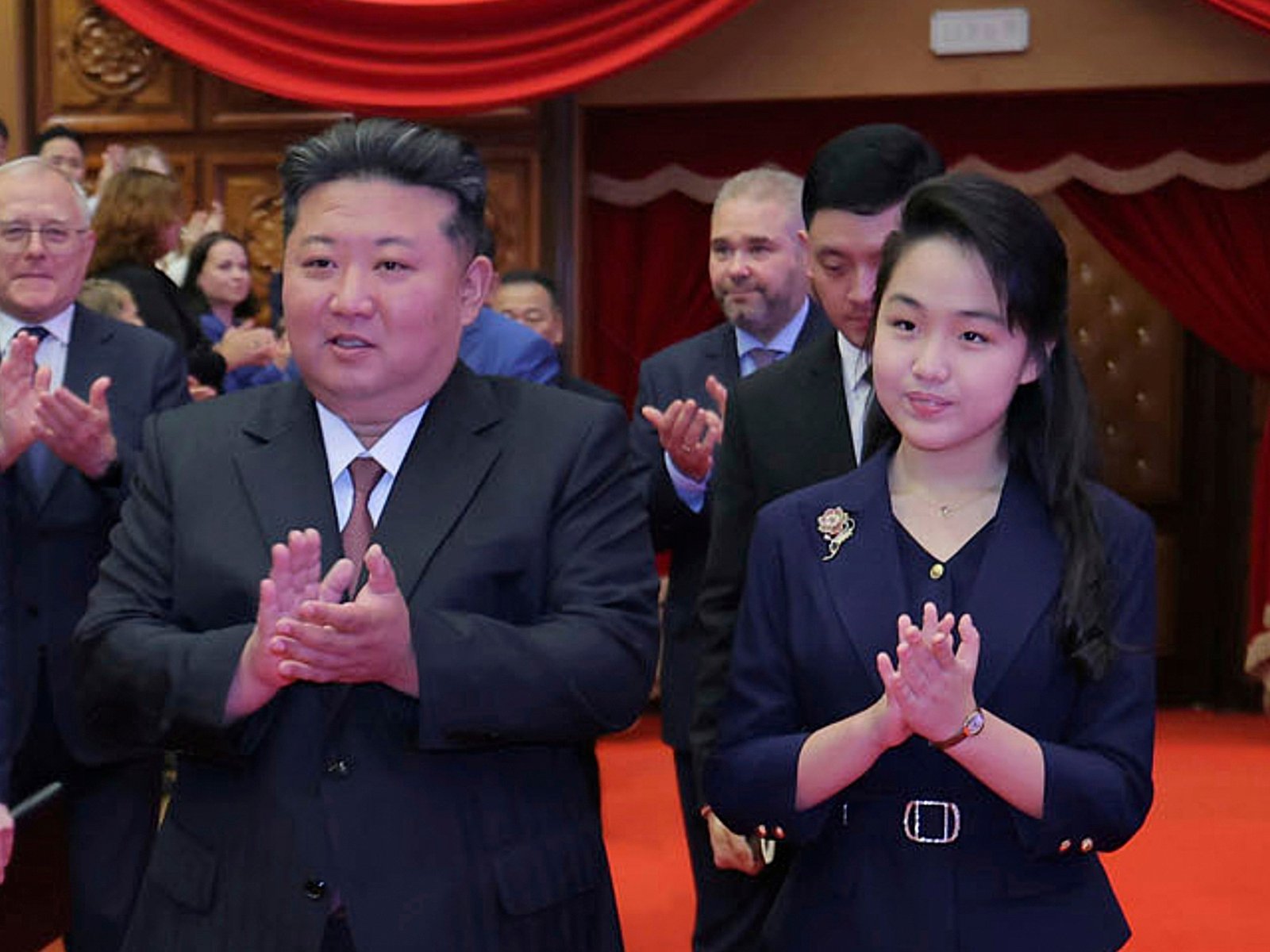
El Congreso del partido podría ofrecer pistas

 POLITICA2 días ago
POLITICA2 días agoAcuartelamiento policial en Santa Fe: reclamo salarial y temor a un conflicto nacional de seguridad

 POLITICA2 días ago
POLITICA2 días agoLa advertencia de ATE a los gobernadores que apoyan la reforma laboral: “Firmarán su sentencia de muerte”

 ECONOMIA2 días ago
ECONOMIA2 días agoCuánto le cuesta a la clase media llenar el changuito y cómo varían los precios de los alimentos entre provincias



